 Your new post is loading...
What is metacognition?
Metacognition, a term that was first defined by John H. Flavell in 1979, is basically thinking about thinking. With metacognition, we become aware of our own learning experiences and the activities we involve ourselves in our paths toward personal and professional growth. We are better able to understand ourselves in the whole process of learning and can develop skills to think about, connect with, and evaluate our learning and interactions each day. But how and why is metacognition important in education?
It has been identified as an essential skill for learner success. Therefore, do we need to design specific lessons focused on metacognition for use in our classrooms each day? And if so, how can we make this happen?
Learn more / En savoir plus / Mehr erfahren: https://www.scoop.it/t/21st-century-learning-and-teaching/?&tag=Metacognition
Via Gust MEES
From Blade Runner to I, Robot, the big screens of Hollywood have predicted the rise of the machine. Automated intelligences will wait our tables and drive our cabs. They will serve us by performing menial tasks. But fact is now surpassing fiction. Automation has moved beyond the factory assembly line as computers are diagnosing illnesses, providing legal counsel, and make financial and political decisions. And if artificial intelligence really is faster, smarter and more reliable, what are we left with?
The answer is precisely that element which makes us less efficient and slower. Our humanity. But rather than being seen as a weakness, this is actually our strongest suit. It’s one we need to empower, because studies show that as the world becomes increasingly automated, computerised and digitalised, we are losing the very skills that define us as human. Just when we need them the most.
Our empathy is something that computers will always struggle to emulate. We need to celebrate what makes us different from even the smartest of the machines. While the future belongs to those who are able to navigate this increasingly digitalised world of ours, the choicest spoils will fall to those who can combine technological fluency with emotional intelligence. Learn more / En savoir plus / Mehr erfahren: https://www.scoop.it/t/21st-century-learning-and-teaching/?&tag=Empathy https://www.scoop.it/t/21st-century-learning-and-teaching/?&tag=Emotional+intelligence
Via Gust MEES
Unstructured learning is an authentic real-world way of learning. That’s because the real world itself doesn’t have neat compartments or set disciplines for success. It demands adaptability, patience, and a willingness to learn and to use what is learned in the moment. Most of all, it requires us to take full responsibility for what we learn. It’s time to play and to let go of rigid teaching in favour of unstructured learning. For this to happen, teachers have to foster trust in their students. They have to be willing to take a step back and put a little slack on the reins of traditional pedagogy. In short, we need to let things get a little messy. Ease into it—it’s a bold step and it will transform everything. Learn more / En savoir plus / Mehr erfahren: https://www.scoop.it/t/21st-century-learning-and-teaching/?&tag=modern-education
Via Nik Peachey, Gust MEES
An idea that is beginning to gain a lot of favour in educational circles at the moment is the notion of fixed versus growth mindsets, and how they might relate to students and learning. Based on the work of Stanford University psychologist, Carol Dweck, the idea of mindset is related to our understanding of where ability comes from. It has recently been seized upon by educators as a tool to explore our knowledge of student achievement, and ways that such achievement might be improved. Learn more / En savoir plus / Mehr erfahren: http://www.scoop.it/t/21st-century-learning-and-teaching/?&tag=Growth+Mindset
Via Gust MEES
Does the character of our leaders matter? According to research done by KRW International it really, really, does!
Welcome to a Leadership Channel Podcast on TotalPicture. Joining Peter Clayton today is Fred Kiel, PhD, co-founder of KRW International, the author of Return On Character. For more than thirty years, he has helped Fortune 500 CEOs and senior executives build organizational effectiveness through leadership excellence and mission alignment. Strategy+Business considers Return on Character one of the best business books of 2015.
With Credit Suisse replacing their CEO after years of fines and the future of companies like Uber and Yahoo! being questioned because of bad CEO behavior, (or the current CEO poster boy, infamous former Turing CEO Martin Shkreli), could this be the wakeup call we need to start measuring how the character of a leader impacts their organization's performance?
For the first time we now have data to measure the correlation. In Return On Character (Harvard Business Review Press,), the findings are revealed from KRW International's seven-year study on the financial impact of character. Learn more / En savoir plus / Mehr erfahren: http://www.scoop.it/t/21st-century-learning-and-teaching/?&tag=LeaderShip http://www.scoop.it/t/21st-century-learning-and-teaching/?&tag=LeaderSkills http://www.scoop.it/t/21st-century-learning-and-teaching/?&tag=Character http://www.scoop.it/t/21st-century-learning-and-teaching/?&tag=Soft+Skills Check also: - http://www.scoop.it/t/21st-century-learning-and-teaching?tag=Emotional-Intelligence - http://www.scoop.it/t/21st-century-learning-and-teaching?tag=Emotions-and-Learning - http://www.scoop.it/t/21st-century-learning-and-teaching?tag=Empathy - http://www.scoop.it/t/21st-century-learning-and-teaching?tag=EQ - http://www.scoop.it/t/21st-century-learning-and-teaching?tag=Daniel-GOLEMAN
Via Gust MEES
We saw tons of new stuff at CES this year. But one thing that particularly caught our eye was Kubo, the robot that teaches kids how to code.
Kubo is a pretty simple robot – it’s about the size of a can of soda and has two wheels that allow it to roll around a desk or table. But what it lacks in advanced physical ability it makes up for in brains.
Kubo comes with its own programming language called TagTile. The language consists of puzzle pieces that fit together to give Kubo instructions. For example, you could connect three pieces together – forward, turn, then another forward. Kubo then drives over these pieces oncer to “learn” the command, then can remember and perform it without needing the pieces.
Kubo reads the puzzle pieces using an RFID technology – each piece has an individual embedded RFID tag, and Kubo itself has a reader built in.
While it sounds simple, it’s a pretty good way to teach kids the basics of programming without having them stare at a screen. Learn more / En savoir plus / Mehr erfahren: http://www.scoop.it/t/21st-century-learning-and-teaching/?tag=Ideas+for+makerspaces https://gustmees.wordpress.com/2014/08/24/coding-a-new-trend-in-education-and-a-big-responsibility/
Via Gust MEES
By teaching students these skills in an authentic, applicable way, will they see each other differently? It’s worth finding out. With so many curricular and time restraints on teachers, how can we be expected to explicitly teach empathy in a meaningful way?
A Definition Of Empathy
Webster’s dictionary defines empathy as: the action of understanding, being aware of, being sensitive to, and vicariously experiencing the feelings, thoughts, and experience of another of either in the past or present without having the feelings, thoughts, and experience fully communicated in an objectively explicit manner; also: the capacity for this. Learn more / En savoir plus / Mehr erfahren:
http://www.scoop.it/t/21st-century-learning-and-teaching/?tag=Empathy
Via Gust MEES
As the world economy shifts away from manufacturing jobs and towards service industry and creative jobs, there’s a consensus among parents, educators, politicians and business leaders that it is crucial students graduate into university or the workforce with the ability to identify and solve complex problems, think critically about information, work effectively in teams and communicate clearly about their thinking. Originally developed by Rotman’s former dean, Roger Martin, integrative thinking is a broad term to describe looking for solutions through the tensions inherent in different viewpoints. Martin noticed that effective CEOs understood that their own world view was limited, so they sought out opposing viewpoints and came to creative solutions by leveraging seemingly opposing positions. For the past seven years, a spin-off group called the I-Think Initiative has been training teachers in the Toronto area on how integrative thinking can build critical thinking in students from a young age. Learn more / En savoir plus / Mehr erfahren: http://www.scoop.it/t/21st-century-learning-and-teaching?tag=Critical-Thinking
Via Nik Peachey, Ana Pérez Escoda, Gust MEES
LEARN
It’s no longer enough for teachers to get a credential and then sit back and teach the same content year after year. Richardson says to be part of modern learning, teachers need to actively educate themselves about the context students live in and how they can improve as educators.
“There’s never been a more amazing time to be a learner,” Richardson said. “How are we in education not running towards that in our own personal lives and embracing that?”
It’s not just about connecting on Twitter with other educators or asking for professional development about technology. If teachers are waiting for a planned PD about something they are probably already stuck. “You have to have the disposition of an eight-year old to find your own learning,” Richardson said.
Via Gust MEES
|
For some people, artificial intelligence still makes them feel a little…uneasy. It’s often depicted as sinister-looking robots who will take over our lives and our jobs, or even replace humanity.
The reality is, we are already in an age in which AI is infused into our everyday lives in ways that augment rather than replace people. Digital assistants such as Cortana can find you the closest restaurant, dictate a text to your friend, manage your email inbox and even help you create more beautiful PowerPoint presentations. Whether you realise it or not, AI is an integral part of all these interactions. And while it’s not something you can often see or touch, I bet you’re already experiencing the benefits of AI every day.
Via Gust MEES
Flipping the curriculum could help us meet the demands of the artificial-intelligence era
Technologies such as artificial intelligence, robotics, and biotech are redefining what it means to be human—and employable.
Jobs are disappearing as automation replaces the need for people. New occupations are emerging that demand competencies that can transfer across the multiple assignments workers will experience in their lives. The disappearance of global boundaries presents opportunities—and risks—for all workers.
These changes demand a significant, ambitious evolution in how we prepare students for their future in a world that's increasingly volatile, uncertain, complex, and ambiguous. We need a relevant and modernized education. Learn more / En savoir plus / Mehr erfahren: https://www.scoop.it/t/21st-century-learning-and-teaching/?&tag=modern-education
Via Gust MEES
If schools are supposed to be training the workers of the future, the growing consensus is that most of them are not doing a very good job of it. In a trend that seems long overdue, technology-based companies are increasingly turning inward to bridge the gap between the skills they need employees have and the skills they’re actually graduating from college with. In 8 Critical Skills For A Modern Education, we offered one view of what ‘modern workplace’ skills might look like, and have argued many times that true ’21st-century learning’ should change what work looks like all together. (Nevermind that, in our estimation anyway, the purpose of school is not job training.) Still, companies (for now, anyway) need human workers with certain skills that, increasingly, they just don’t have. It’s nearly 2018, and the concept of 21st-century skills is more than two decades old now. Learn more / En savoir plus / Mehr erfahren: https://gustmees.wordpress.com/2015/10/29/if-i-would-own-a-company-what-skills-would-i-expect-from-my-workers-in-21st-century/ https://gustmees.wordpress.com/2015/07/19/learning-path-for-professional-21st-century-learning-by-ict-practice/
Via Stephania Savva, Ph.D, Ivon Prefontaine, PhD, Gust MEES
During this time of significant educational change, we are forced to ask ourselves, what is the role of the teacher?
Teachers continue to be central to learning, but the role is changing significantly. Our children still need to develop real skills and real knowledge, but they also need to be self-reliant, resilient, and fully capable of re-inventing themselves. This means students must learn how to self-direct their learning.
So if students are self-directing their learning, what's the role of the teacher?
Teachers build the curriculum/lessons with the individual student based on his/her needs and interests rather than move through a fixed curriculum en masse.
Teachers provide the experiences and tools to access new knowledge in specific areas of interest as facilitators of individual pathways, rather than being a provider of the content or expert in one or every area,Teachers become experts in how people learn, not only in teaching.
Teachers support a community of learners in teams, possibly of multiple ages, rather than alone in classrooms with fixed grades of students.
Teachers have more autonomy over their daily schedule, and can be flexible to adjust their schedules to support student needs.
Teachers provide opportunities for real-world, connected, practical learning rather than isolated academics.
These are the types of changes in the teacher's role that are fundamental to developing students who are capable of independent learning and reinvention in a rapidly changing world.
Learn more / En savoir plus / Mehr erfahren: https://gustmees.wordpress.com/2013/05/25/so-whats-the-change-for-teachers-in-21st-century-education/
Via Gust MEES
Pushing our students to adopt a growth mindset is an easy call. Adopting one ourselves is harder. Having a growth mindset doesn’t just mean learning about the theory and leaving it at that. It’s a constant process. Sometimes it’s difficult, often it’s a little painful, but it’s always worth the effort. Six Tips for Instilling a Growth Mindset in YourselfFocus on the hard stuff Try innovative solutions, and if they don’t work, try some more. Seek feedback wherever you can. Reflect at the end of every day, especially the bad ones. Notice the areas where you have a fixed mindset. There’s a catch to learning a lot about growth mindset. Once we learn just how much of our lack of growth is a product of our attitude, it’s not so easy to write things off as impossible anymore. Learn more / En savoir plus / Mehr erfahren: http://www.scoop.it/t/21st-century-learning-and-teaching/?tag=Growth+Mindset
Via Gust MEES
“Skills young people should be learning to be prepared for a career in 2020 include:
The ability to concentrate, to focus deeply.
The ability to distinguish between the “noise” and the message in the ever-growing sea of information. The ability to do public problem solving through cooperative work. The ability to search effectively for information and to be able to discern the quality and veracity of the information one finds and then communicate these findings well. Synthesizing skills (being able to bring together details from many sources). The capability to be futures-minded through formal education in the practices of horizon-scanning, trends analysis and strategic foresight.” Learn more / En savoir plus / Mehr erfahren: https://gustmees.wordpress.com/2015/05/26/what-are-the-skills-needed-from-students-in-the-future/
Via Gust MEES
|



 Your new post is loading...
Your new post is loading...










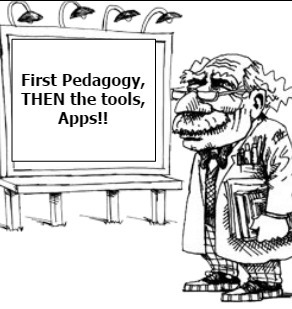
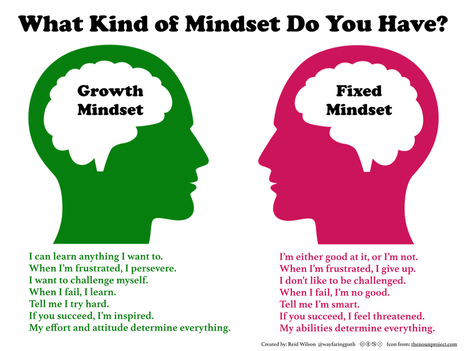



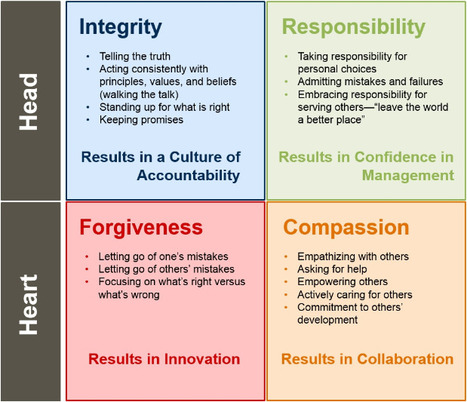

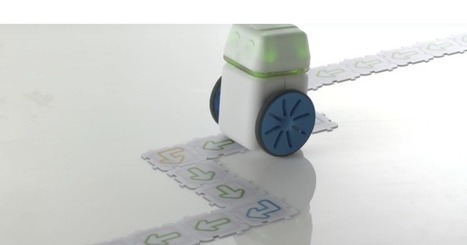


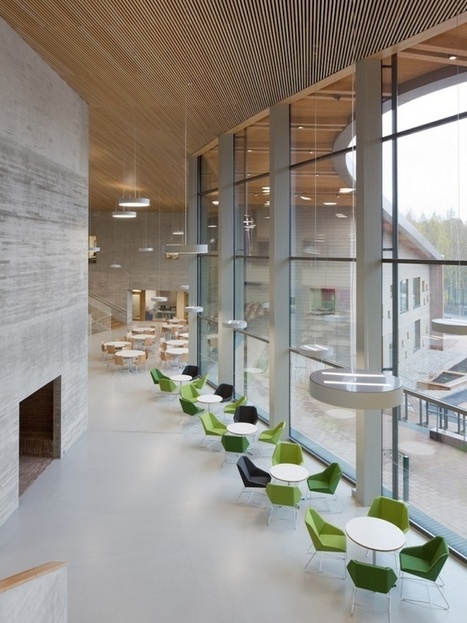

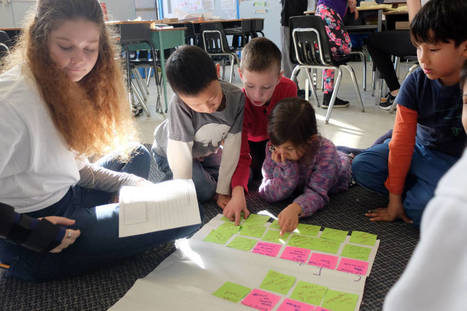


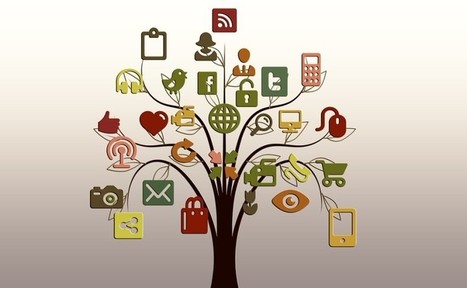
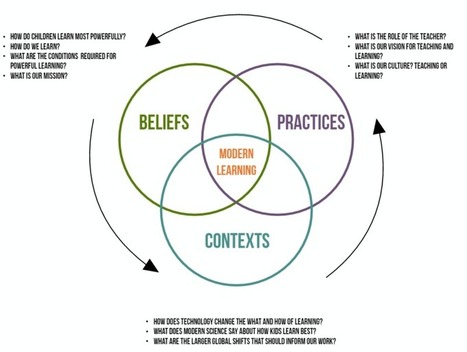



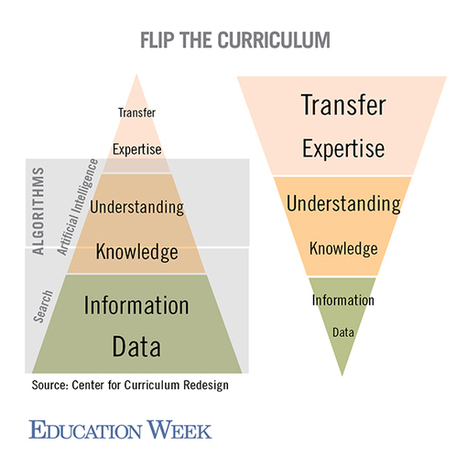


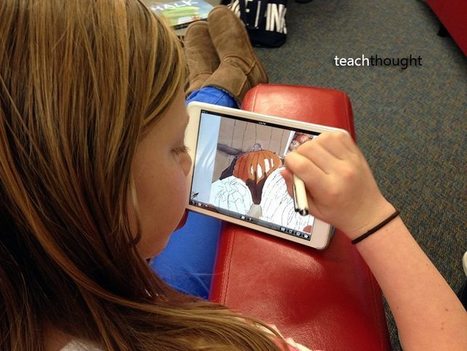


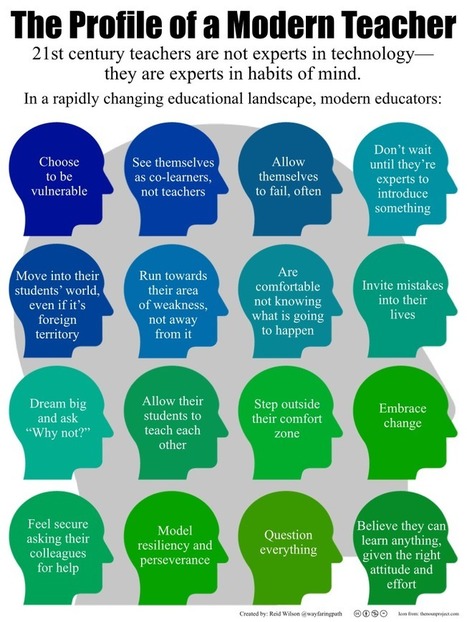


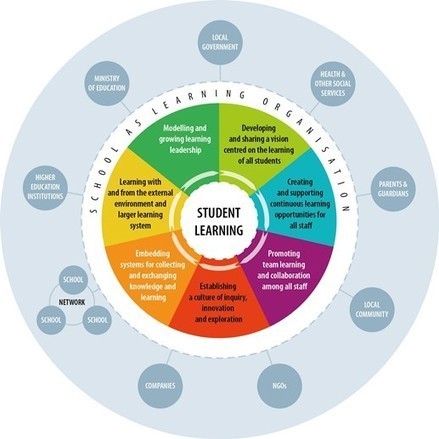




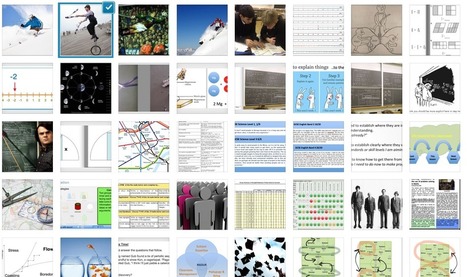
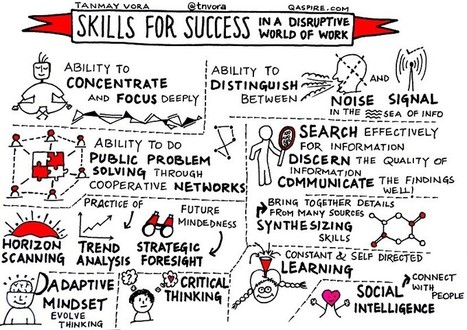



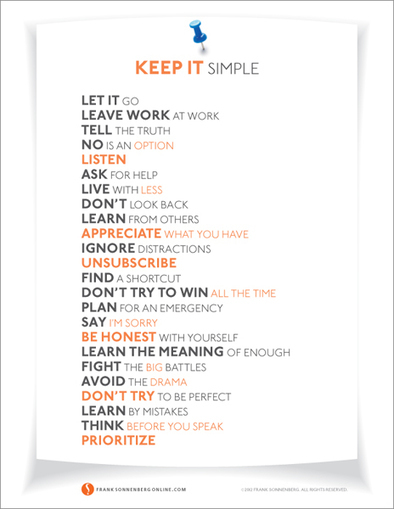





Metacognition, a term that was first defined by John H. Flavell in 1979, is basically thinking about thinking. With metacognition, we become aware of our own learning experiences and the activities we involve ourselves in our paths toward personal and professional growth. We are better able to understand ourselves in the whole process of learning and can develop skills to think about, connect with, and evaluate our learning and interactions each day. But how and why is metacognition important in education?
It has been identified as an essential skill for learner success. Therefore, do we need to design specific lessons focused on metacognition for use in our classrooms each day? And if so, how can we make this happen?
Learn more / En savoir plus / Mehr erfahren:
https://www.scoop.it/t/21st-century-learning-and-teaching/?&tag=Metacognition
Cricket is life…Life is cricket : If you are living in a country called India, I am sure you could relate to any of the two emotional phrases in the title.
https://happyrealization.com/cricket-is-life-life-is-cricket/